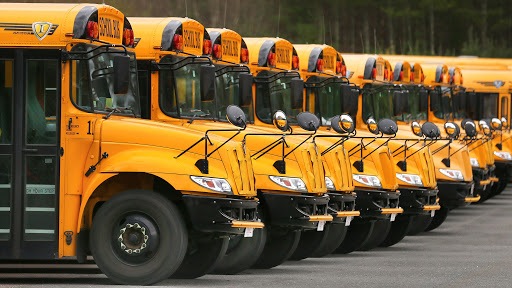Back to school safe driving practices should be taken quite seriously. Let’s be safe this fall and remember, our kids always come first.
It’s that time of year again, summer vacation is over and schools are open. With that in mind the Garden City Police Department has put together a four-part series of articles to address Back to School Safety Issues. Part One will address “Safe Driving Practices,” Part Two “School Bus Safety,” Part Three “Pedestrian and Bicyclist Safety” and Part Four “Stranger Danger.”
When schools are opening in the morning and closing in the afternoon, the areas around schools are very busy and crowded. Parents and other adults can do much to improve traffic safety around our schools by driving cautiously, teaching their children safe practices and limiting vehicle trips. In some cases, parents and other adults may be the cause of safety concerns. Drivers should obey all traffic laws and apply the following safety practices.
Back to School Safe Driving Practices:
- Although New York State does not have a law preventing children from sitting in the front seat, it is highly recommended that all children age 12 and under ride properly restrained in the back seat. The New York State Governor’s Traffic Safety Committee research of children who died in car crashes in 2018 indicates 33 percent were not buckled up. Beginning November 1, 2020, all back-seat passengers must be properly restrained.
- When dropping off or picking up children at school, avoid parking on the opposite side of the street from the school. If you have to park on the opposite side of the street, NEVER call your children to your car. Always meet them on the school side of the road and walk them to your car. Also, talk with them about what to do if you are not there on time.
- Make sure children are careful opening car doors. Children should always get in and out of your vehicle through the rear curbside door.
- Drivers should not double park or block traffic. Parking or waiting in red zones is also prohibited.
- Do not block school buses or use areas designed for buses only.
- Never stop or park in a crosswalk or within the posted crosswalk “No Parking” area. Students and other pedestrians rely on the crosswalk and need the visibility that the posted “No Parking” buffer provides to cross the street safely.
- Do not violate the law by using the excuse “I’ll just be here for a minute” when picking up or dropping off students.
- Do not make U-turns within school zones and avoid turning around in neighboring driveways. It’s hard enough to see children and even harder when you’re backing up or making U-turns.
- Never leave a child of any age in a vehicle without adult supervision. A small child may rapidly suffer dehydration, heat exhaustion and consequent organ failure. Older children could play games that may lead to tragedy.
- Learn the traffic patterns at the schools to avoid being a disruption.
- SLOW DOWN! You’re free to drive even slower than the posted school zone speed limit and should always be considered when conditions warrant it such as: heavy rain, snow, fog, icy roads, darkness or heavy traffic conditions.
- NEVER pass a stopped school bus when its red flashing lights are on. Whether you are behind the bus or approaching from the opposite direction, you must come to a full stop and remain stopped until warning lights are off. According to the National Highway Transportation Safety Association (NHTSA), from 2008 to 2018, 1,357 people were killed nationally in school transportation related accidents.Motorists should keep in mind that young children usually see and hear differently than adults. Children only have two-thirds the peripheral vision adults have and they have difficulty determining the source of a sound. They are still learning to judge distance and speed. When a car is coming toward them, they cannot accurately judge how fast it is traveling or how long it will take to cover the distance. Children focus on one thing at a time. If they are playing with friends or riding bikes it is unlikely they are aware of your car. Children are spontaneous and have trouble stopping an action once started. Children also tend to overestimate their abilities, thinking they can run across a street before the light changes or a car approaches.If parents and other motorists make a habit to incorporate these safe practices into their routines, the risk of injury or death to anyone in the school zone will be greatly reduced. The Garden City Police Department encourages everyone to read Part Two, “School Bus Safety,” next week.
Hanging Masks on Rearview Mirrors
Preventing Road Rage and Aggressive Drivers
Click here to view original web page at www.gcnews.com



